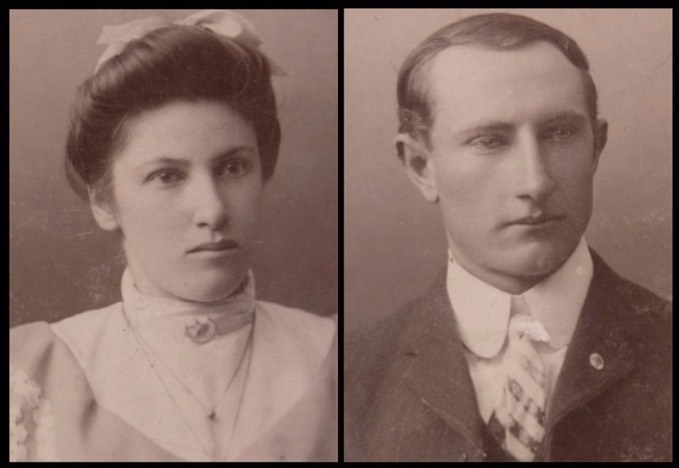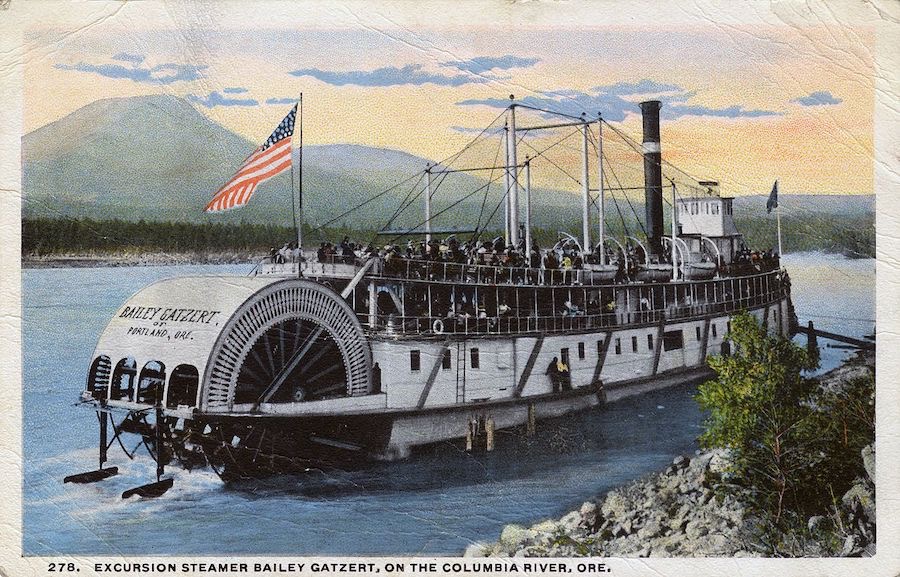The family stories I share are not all from my mother, though a couple of good ones are. Most of the family stories I've heard do arise from my mother’s side of the family, and some of them have turned out to be at least plausible. A few others that cannot be confirmed nor disproved are not the sort of tales which families would be inclined to produce out of whole cloth.
In the latter category is one about my grandmother’s beloved aunt, known in the tale only as “Auntie Sherman,” the woman who kept the family from starving during the depression. It took me many years to realize that when my grandmother and my mother regaled their respective families with tales of woe and privation during “the depression,” they were talking about two different depressions.
The one foremost on Grandma Lillie’s mind struck in the early 1890’s when a blended gaggle of McCaul and Robinson children were being cared for in a rough neighborhood of St. Louis by Thomas Lovewell’s ailing daughter Julany, while the family breadwinner, Edward McCaul, slowly languished in a railroad hospital.
Fortunately, the family had an angel they could turn to in a pinch. Every few weeks Alice McCaul and Lillie Robinson made the trek across a bridge over the Mississippi into a red-light district of East St. Louis to Auntie Sherman’s place, coming home with aprons stuffed full of cash. A decade after Thomas Lovewell swooped in to bring the family to safe harbor in Jewell County, Kansas, Lillie married the boy next door, the local blacksmith’s son, William Finley Logan.

Having a father who was also the town’s Justice of the Peace may have cultivated a prudish streak in William, because he would stomp out the back door on the rare occasion when Auntie Sherman dropped by to visit her niece. “I will not have that woman under my roof,” he fumed. We are led to assume that Auntie Sherman dressed the part of a woman of her calling.
This story was shared by my cousin Nancy when I called one evening to clarify some matters of family history. Nancy is thirteen years older than I, with grittier stories to tell. The ones my mother shared with me tend to be more dignified, such as her description of Grandma Lillie’s wedding aboard a steamboat near Portland, where she had been born seventeen years earlier.
Lillie and William were supposedly married by the bride's uncle who was captain of the steamboat. Since my mother told the story in her mother’s presence, I never really doubted it, even after finding the actual record a few years ago, which shows that the couple were married in front of Judge McGhee at Mankato, the landlocked county seat of Jewell County.
You see, there was another detail provided by Nancy that the groom’s father, James William Logan, would not allow the young couple to travel half the length of the country together by train, unless they were lawfully united beforehand. Perhaps prudishness ran in the family.
It all seems believable, enough so that I’ve idly searched from time to time for a steamboat captain operating in the Pacific Northwest with some possible family connection to Lillie Robinson. Unfortunately, I’ve been unable to locate a captain named Robinson, Lovewell, Turnbull or McCaul commanding such a craft in the Portland area in 1904.
Can you see where this is going? I couldn’t find it, until I stuck the two family stories together on this page and got to wondering how a blacksmith in Lovewell had the means to send a newlywed couple on a cross-country excursion complete with a shipboard wedding and honeymoon cruise on the Columbia River. It’s almost as if the bride had a fairy godmother. Oh, wait! Had I tried “Captain Sherman?"
Capt. Fred Sherman, master of the steamer Bailey Gatzert, and one of the best known rivermen, will retire from active service June 1, to take charge of his extensive apple orchards at Hood River. Capt. Sherman has been master of the Bailey Gatzert ever since she began running to The Dalles seven years ago. For 30 years he has been master of various steamers that have plied upon the Columbia and Willamette rivers.
-Portland Journal, May 1910

As wise cousins sometimes say, “Bless the working girls who kept us clothed and fed through bad times."